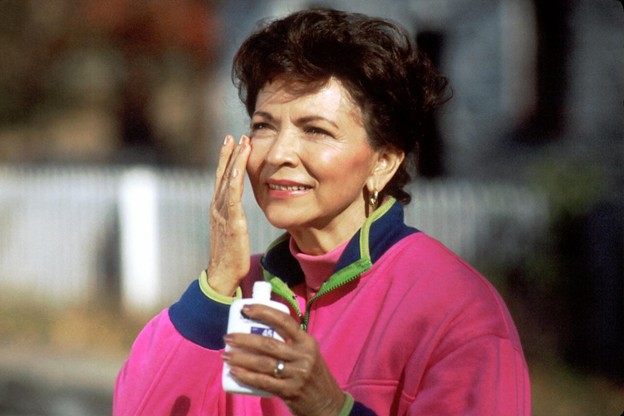
In 2004, the identification of a need for a higher level of skill in the nursing profession resulted in the establishment of a doctor’s degree in nursing. This nursing qualification brings with it a high level of scientific knowledge and expertise, and is designed for nurses with a degree who wish to practice in a clinical environment.
The Doctor of Nursing Practice (DNP) qualification falls into two categories: care of individuals and care of organizations (also referred to as systems). The degree encompasses scientific analysis skills, organizational and management competency, leadership skills, advocacy and knowledge of policies supporting healthcare.
The complexities of a healthcare system
Analysis and design of healthcare systems require a good understanding of the clinical and human components of the system, and how they combine to provide patient care. Through a detailed analysis of a healthcare system, as documented in a publication titled Building a Better Delivery System: A New Engineering/Health Care Partnership, we learn about the complexities of healthcare systems, with a focus on four levels: the patient’s needs, the care team, the organization, and the political and economic environment.
The patient’s needs
The first level of concern should be the patient, with efforts to improve the timeliness, convenience and effectiveness of treatment.
Knowledge and good communication are key here, and the patient should have access to information regarding their accounts and treatment, enabling them to be more involved in their care if they so wish.
The care team
The care team includes all healthcare professionals involved in the treatment, family members of the patient, and care providers, with the collective concern being the patient’s health and comfort.
The role of physicians has undergone changes due an exponential increase in medical knowledge, an increasing number of specializations, and a growing need for the management of chronic illnesses. This has altered the state of independence of physicians, requiring them to work as part of care teams and to rely on the infrastructure and tools provided by the clinical environment.
Again, information and communication are crucial to the physician’s successful participation in the team.
In addition to the care team, a clinical microsystem should be established, the role of which is to standardize medical care where possible based on current information and according to the condition presented. The aim is to provide the best evidence-based treatment for that condition and only customize treatment for patients who present with very complex health problems. This will eliminate the practice of variations in the medical system, which sometimes take place.
Care teams also need to be more responsive to the patient’s needs, and communication of information between the team and the patient is important.
The organization
At the third level of healthcare, the organization encompasses the hospital, clinic or nursing home that provides infrastructure to support the work of the care teams. The organization facilitates the coordination of care teams and support units and manages the flow of all resources.
Patient-centered, team-based care requires managerial, material, logistical and technical expertise if it is to function efficiently. A culture of teamwork, learning and customer focus is an important requirement.
The political and economic environment
The federal government has a responsibility to care for, and a strong influence on, the market environment for healthcare. Federal agencies fund research and technology and subsidize the education of healthcare professionals. Through funding and reimbursement of Medicaid and Medicare, federal and state institutions influence care systems, as do private sector purchasers of healthcare.
How does a DNP graduate assess and design systems?
With the above structures in mind, the advanced organizational, leadership and economic education of the DNP imparts a system-based approach to the clinical setting. Their expertise facilitates the continued evaluation and improvement of the healthcare systems in place, enhancing patient diagnosis and treatment, and ideally introducing improved overall efficiency and cost-saving benefits.
The DNP’s knowledge of policy enables a constructive evaluation of the impacts of the healthcare organization’s policies and practices on patient outcomes.
Engagement with interprofessional teams of people enables the DNP to analyze, restructure and implement new and improved policies and procedures in the clinical environment.
A key focus of a DNP graduate is to evaluate evidence-based research and implement systems and policies based on their findings. Through a mindful application of steps, the DNP is able to ensure an improvement in patient care by translating and implementing evidence into practice.
More about evidence-based outcomes
By incorporating the best available research with clinical experience and patient preference, nurses can make well-informed decisions regarding the care of their patients. These decisions are put into practice, and when measurable success is achieved, the process can be incorporated into new or existing policies.
The process can be formalized, as in the following example:
The question: A well-considered and detailed question is the basis of a successful outcome. What is the ultimate goal of the exercise?
Evidence: Seek out a broad base of good-quality evidence, including high-quality articles, case reports and reviews.
Analysis: Does a critical evaluation of the evidence to ensure optimal quality and determine whether it fits the requirements of the particular patient. If in doubt, draw from your own clinical experience.
Application: Apply the evidence to clinical practice, keeping in mind the patient’s priorities.
Assessment: Is the outcome successful, and can it be used in future cases? How does the outcome relate to the original question?
Why should an APRN consider further studies?
A paper published by the American Association of Colleges of Nursing (AACN) acknowledges the need for nurses with doctorates. Nurses’ education preparation and time commitment should be comparable to that of other professionals in the medical field.
As a degreed nurse practitioner, you may want to consider joining the ranks of doctorally prepared nurse practitioners with a DNP qualification from Baylor University, introducing you to a new and interesting set of skills and enhancing your career prospects.
Nurses with a higher level of skills and education will not only be in a position to earn more, but they will also gain immense job satisfaction and have a significant impact on their working environment.
Taking charge of your career
The convenience of online study has opened up a multitude of opportunities for self-improvement. If you see yourself in a leadership role, advocating for change and improving the quality of healthcare, then a DNP is worth considering for a meaningful impact in your professional life.





